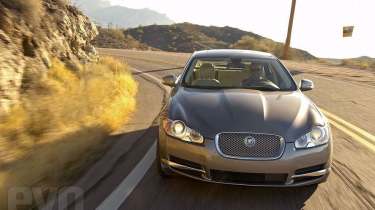Jaguar-Land Rover sale
Jaguar and Land Rover: the uncertainty is over
As motor industry business stories go, this is a big one. Rumours of Indian industrial conglomerate Tata's takeover of Jaguar and Land Rover have been circulating for months as various other suitors have faded from speculation, but owner Ford would never rule out selling the companies separately despite the vast logistical difficulties this would bring. That's because Jaguar (still loss-making but improving thanks partly to postive XF reviews) and Land Rover (profitable) share many purchasing systems and pool resources for research and development. Unravelling this would be a nightmare. But now there's no need, because this week Tata has bought the two companies as a package to add to a portfolio which includes not only India's largest truck manufacturer but also the ultra-cheap Tata Nano economy car, steel manufacturer Corus (formerly British Steel) and even Tetley tea. 'We are very pleased at the prospect of Jaguar and Land Rover being a significant part of our automotive business,' chairman Ratan Tata said as the deal was announced. 'We have enormous respect for the two brands and will endeavour to preserve and build on their heritage and competitiveness, keeping their identities intact. We aim to support their growth, while holding true to our principles of allowing the management and employees to bring their experience and expertise to bear on the growth of the business.' That is good news, suggesting that existing jobs and manufacturing facilities stay intact, at least for the time being. The same applies to future model plans, which increasingly seem to include a sub-XK-size sports car which might finally see a use for the F-type name. The deal, which has cost Tata $2.3bn, includes a $600m injection by Ford into that Jaguar/Land Rover pension fund. Ford will also continue to supply engines, pressings and other components while needed, plus R&D and engineering expertise, but has kept no ownership stake unlike its arrangement with Aston Martin. It remains a mystery why Ford wanted to offload JLR, given the two brands' promising profitability prospects. The answer lies in Ford CEO Alan Mulally's desire to shrink drastically-loss-making Ford into a more integrated, one-badge, world brand concentrating on its core values without distraction. Where Volvo fits into this plan is hard to say.



